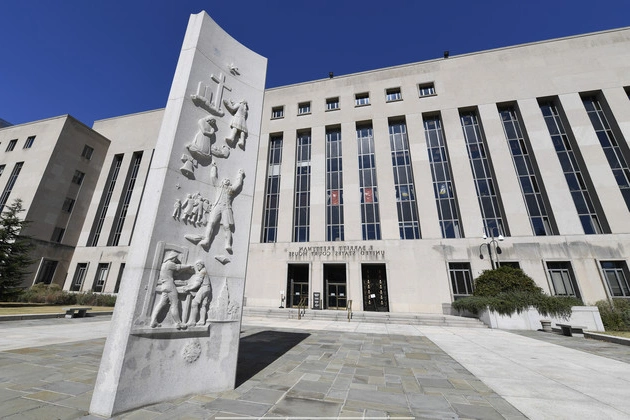
A panel of appellate judges on Monday appeared skeptical of EPA’s reasons for terminating $20 billion in Biden-era climate grants, but it indicated the dispute could end up in a different court.
During over two hours of oral arguments, the three judges questioned the timing and authority of EPA Administrator Lee Zeldin’s termination of the Greenhouse Gas Reduction Fund grants, which were intended to support climate and affordable housing projects using funds from Democrats’ climate law.
Legal Scrutiny and Controversy
“The facts here are not great for the government,” said Judge Nina Pillard, an Obama appointee, pointing to EPA’s abrupt termination of the grants in March, on the eve of an initial hearing in a recipient’s lawsuit and while the agency was still in the midst of its own fact-finding probe.
The panel’s other two members, Gregory Katsas and Neomi Rao, both of whom were named to the bench by President Donald Trump in his first term, expressed more skepticism about allowing recipients to spend money while litigation plays out.
“If the money were to go out, and then the government were to ultimately prevail, the government would be out of these billions of dollars,” Rao said while trying to determine what is in the public interest.
But Katsas and Rao also had hard questions for EPA, including over its concession that it has made no specific allegations of wrongdoing by the recipients themselves.
“What is your claimed basis for termination on the theory that there’s no breach, there’s no waste, fraud or abuse — but there’s a contract structure that might facilitate that?” asked Katsas. “I’m not sure I see that in the grant agreement.”
Yaakov Roth, acting assistant attorney general for EPA’s civil division, replied that EPA can cite “structural risk of waste and abuse” rather than specific instances.
EPA and the grant recipients have been fighting over the funds for over two months. Things came to a head in the U.S. District Court for the District of Columbia last month, when Judge Tanya Chutkan, an Obama appointee, ruled that EPA had terminated the grants unlawfully and that the recipients should be able to access their funds. The groups have at least $625 million in transfer requests pending, though that number has likely risen since it was disclosed in mid-April.
Political Implications and Future Challenges
The legal fight will decide the future of one of the Biden administration’s signature climate achievements, and one that Democrats in the Inflation Reduction Act structured to be obligated before Trump could return to power. The Trump administration has plowed ahead with canceling these and around 800 other smaller grants nonetheless.
House Republicans included a repeal of the GGRF authority in their reconciliation bill that passed out of committee last week, but it has not yet cleared the House or gone before the Senate.
Although EPA argues its terminations were lawful, its primary legal argument is that the terminations can only be challenged as a breach of contract, which under a federal law called the Tucker Act would have to be heard by a specialized tribunal, the U.S. Court of Federal Claims.
Legal Jurisdiction and Disputes
“We have a dispute over whether the contract has been terminated consistent with the terms,” said Roth. “If we’re right about that, they get nothing. If they’re right about that, they get damages. And we’re not disputing that. But that has to be a different court.”
Chutkan disagreed and held she had jurisdiction, and EPA immediately appealed to the D.C. Circuit.
Earlier this month, Katsas and Rao ruled that terminated grants from the U.S. Agency for Global Media to several radio outlets were contract claims that must go before the Court of Federal Claims. Pillard dissented in those cases, and the full D.C. Circuit subsequently stayed their ruling.
The two judges made similar statements during Monday’s arguments over EPA’s actions.
Rao argued the case was “a dispute about who has title” to the money — the recipients or EPA. “Why isn’t that a contract question that should go to the Court of Federal Claims?” she asked.
Adam Unikowsky, an attorney at Jenner & Block representing the grant recipients, replied that the groups believe EPA has a “security interest” but that otherwise “it’s our money, and we’re seeking to vindicate our property interest in that money.”
But Katsas also indicated he was struggling to see the difference.
“I’m not sure the line between contract and property matters,” he said. “We’re talking about the Tucker Act and contract claims, and it doesn’t really matter whether the government’s obligation is to pay money out of the treasury, which triggers all sorts of other issues, or whether it’s just any old contract obligation. If it’s a contract claim, it’s a contract claim.”
…
If EPA should lose before the D.C. Circuit, Zeldin made it clear last week that he will appeal.
“The Supreme Court is the highest court in the land, so if a district court judge makes a decision, we are not going to assume that the United States Supreme Court is going to agree with that district court,” he said at a Senate appropriations hearing.











